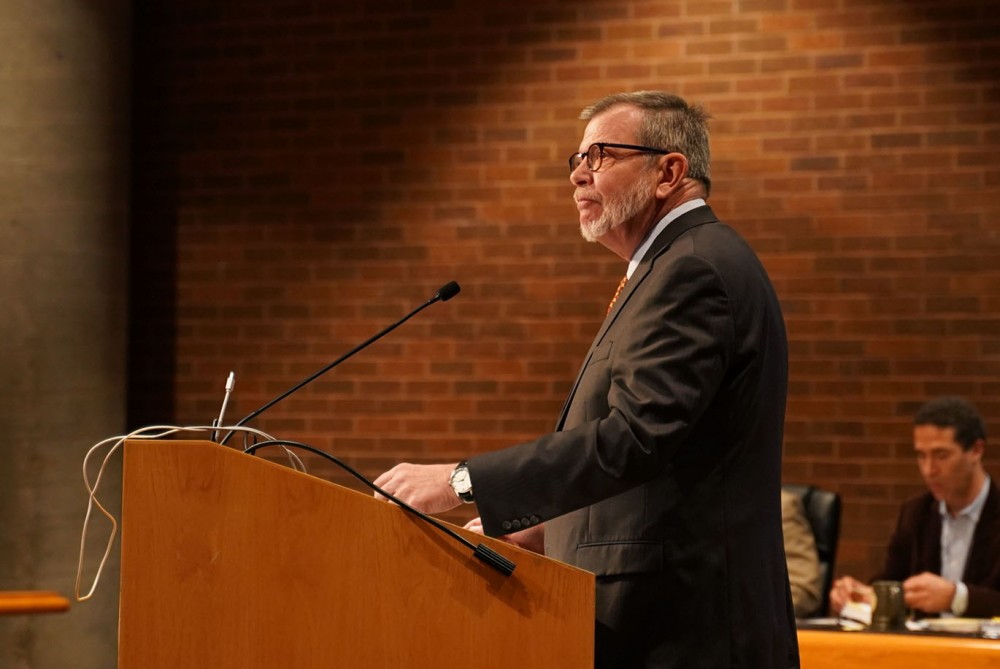University of Minnesota President Eric Kaler offered regents a plan that lowers the increase of tuition to 2 percent, down half a percent from his initial plan, according to a memo sent to regents.
If approved, this will cost undergraduates on the Twin Cities campus $72 less per year than the prior budget proposal and the University will have $1.6 million less dollars in revenue, the memo read. The total budget of the University is around $4 billion.
In the memo, Kaler maintains that a 2.5 percent increase is “reasonable and justifiable,” standing by his initial recommendations but offers the board a different option.
“In response to the Board discussion and request for an option to balance the budget with a lower tuition rate, I offer an alternative,” Kaler said in the memo.
To address lost revenue from the lesser increase, Kaler proposes reducing investments in four areas totaling $700,000, as well as transferring $900,000 from central reserves.
After transfers and allocations, the University’s central reserves is projected to have about $56 million, according to budget documents, more than double what is required by a regents policy.
The College of Liberal Arts would receive $200,000 less of a funding increase resulting in two less faculty positions in the department of Economics, Statistics and Psychology.
In addition, the College of Science and Engineering would receive $200,000 less meant to address increased facility costs at Tate Hall, which will likely have to be reallocated within CSE’s own budget.
Other cuts include $200,000 meant to increase support for graduate assistants in the College of Biological Sciences and eliminating a $100,000 funding increase for the Center for Bioethics within the Medical School.
















